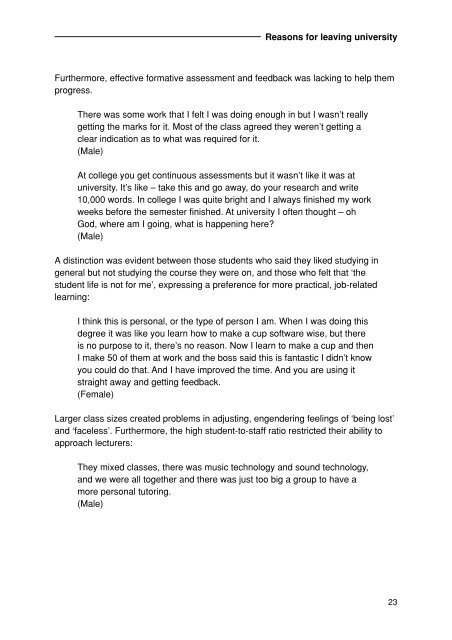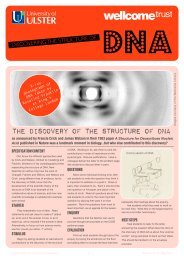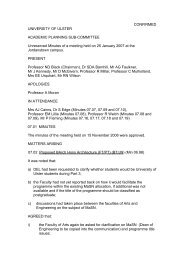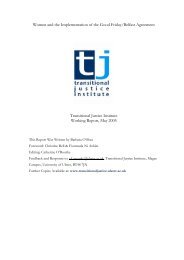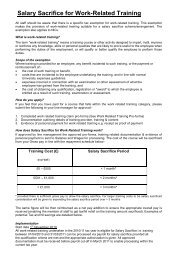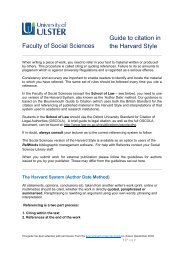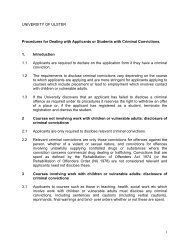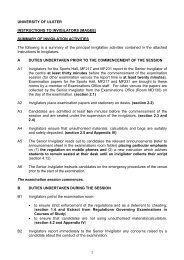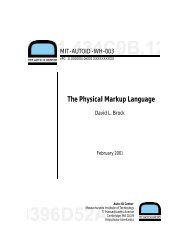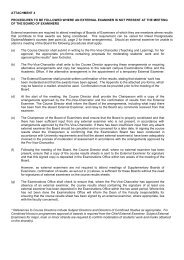From life crisis to lifelong learning: Rethinking working-class 'drop out'
From life crisis to lifelong learning: Rethinking working-class 'drop out'
From life crisis to lifelong learning: Rethinking working-class 'drop out'
You also want an ePaper? Increase the reach of your titles
YUMPU automatically turns print PDFs into web optimized ePapers that Google loves.
Reasons for leaving university<br />
Furthermore, effective formative assessment and feedback was lacking <strong>to</strong> help them<br />
progress.<br />
There was some work that I felt I was doing enough in but I wasn’t really<br />
getting the marks for it. Most of the <strong>class</strong> agreed they weren’t getting a<br />
clear indication as <strong>to</strong> what was required for it.<br />
(Male)<br />
At college you get continuous assessments but it wasn’t like it was at<br />
university. It’s like – take this and go away, do your research and write<br />
10,000 words. In college I was quite bright and I always finished my work<br />
weeks before the semester finished. At university I often thought – oh<br />
God, where am I going, what is happening here?<br />
(Male)<br />
A distinction was evident between those students who said they liked studying in<br />
general but not studying the course they were on, and those who felt that ‘the<br />
student <strong>life</strong> is not for me’, expressing a preference for more practical, job-related<br />
<strong>learning</strong>:<br />
I think this is personal, or the type of person I am. When I was doing this<br />
degree it was like you learn how <strong>to</strong> make a cup software wise, but there<br />
is no purpose <strong>to</strong> it, there’s no reason. Now I learn <strong>to</strong> make a cup and then<br />
I make 50 of them at work and the boss said this is fantastic I didn’t know<br />
you could do that. And I have improved the time. And you are using it<br />
straight away and getting feedback.<br />
(Female)<br />
Larger <strong>class</strong> sizes created problems in adjusting, engendering feelings of ‘being lost’<br />
and ‘faceless’. Furthermore, the high student-<strong>to</strong>-staff ratio restricted their ability <strong>to</strong><br />
approach lecturers:<br />
They mixed <strong>class</strong>es, there was music technology and sound technology,<br />
and we were all <strong>to</strong>gether and there was just <strong>to</strong>o big a group <strong>to</strong> have a<br />
more personal tu<strong>to</strong>ring.<br />
(Male)<br />
23


